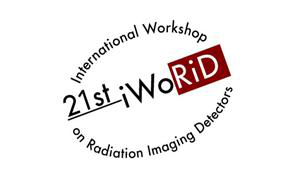Speaker
Description
The silicon strip sensors are heavily employed in the high energy physics experiments owing to their excellent performance in tracking and vertexing of incoming particles in the radiation environment. However, as these sensors have to be operated in intense radiation environment with unprecedented luminosity, they would undergo both surface and bulk radiation damage. The requirement of operation of these sensors in such radiation environment imposes stringent constraints on the design parameters and so the production of a large quantity of sensors demands for a quality assurance scheme. The quality assurance scheme, in general, consists of measuring various sensor design parameters, viz. total sensor leakage current, backplane capacitance, strip leakage current, poly-silicon resistance, interstrip resistance, coupling capacitance, interstrip capacitance, and dielectric current in temperature and humidity controlled environment. The sensors are then accepted or rejected based on the constraints offered by a specific experiment.
Our Group at the University of Delhi is in the process of establishing a characterization system, for the first time in India, for testing a large array of silicon micro-strip sensors. A set of electrical characterization units, capable of providing 3000 V and measuring pico-Ampere currents and pico-Farad capacitances, are installed in the facility. Among other features, the probe station has a capability to translate in three directions, with a step size of 2 micro-meter over the range of 20 cm in XY directions. The entire system is interfaced through the Automated Characterization Suite (ACS) software and can be programmed in such a way that one does not need to intervene manually as it switches from one silicon strip to another. Several measurements involving currents, capacitances and resistances can be performed for the total, strip and inter-strip parameters. It is primarily envisioned to utilize the setup for the qualification of position-sensitive micro-strip silicon sensors for the CMS outer tracker in the high-luminosity LHC upgrade. In this work, we present the details of this characterization system and measurements performed on some silicon strip sensors.
